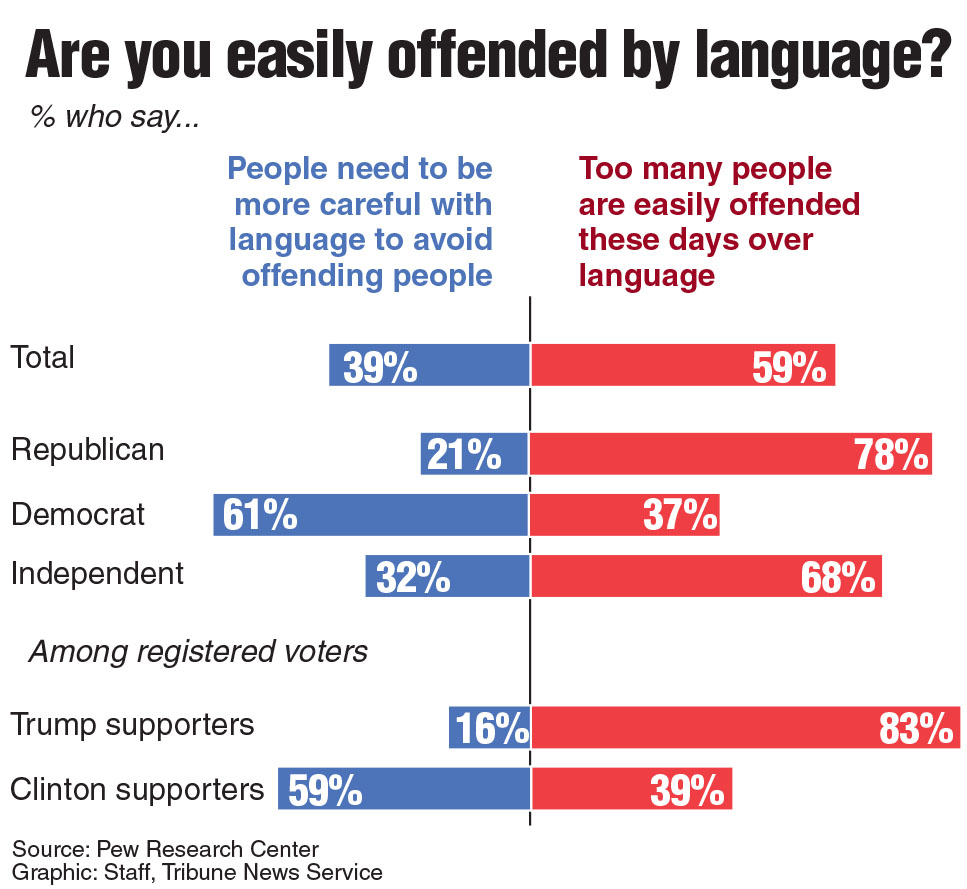Intl. student discusses PC language
Opinion columnist Kaushik Mahida discusses his experience with politically correct (PC) language since arriving to the United States from India.
Sep 11, 2017
I moved to the United States roughly a year and a half ago from India. Cedar Falls welcomed me with bitter cold weather, but with a warm heart. My initial days here were some of the toughest, owing to the cold weather and exhaustion from the trip.
Most of my time here was typically spent on adjusting to the new environment, exploring the new culture and making new friends. I was in awe of how polite the community was in Cedar Falls. I often sensed an overtone in this politeness, which somebody later explained to me was “Politically Correct Language.”
Often, I have been asked by my colleagues or friends after they have cracked a joke, on whether the joke in any way offended me. Either that, or they have gratuitously explained that they were just trying to have fun, even though I had hysterically laughed at their jokes and was noticeably not offended.
This has made me wonder as to what gives me the right to such entitlement, that my friends have to automatically make sure that I’m in no way offended. Is it my skin color, my international status or something else about me that have earned me this privilege? Would it have been different if I were a different skin color?
My first encounter with “PC” was in my first week here, although I was not aware of the term back then. Being an international student, I wanted to seize every opportunity to make new friends. In a bid, I decided to show a couple Bollywood dance moves from a popular song in India to a student from a different county.
“That song is offensive to my culture!” yelled another student in that group. She was visibly furious. For a moment, I thought she wasn’t addressing me at all, but she quickly made that clear with more yelling at me.
I was quickly taken aback by the fact that I was expected to refrain from listening to a popular Bollywood song, which was on repeat on every radio and in every club in India, because it offended someone’s culture, who neither shared the same country as me nor spoke the same language.
My time of arrival coincided with the US Presidential Campaign. UNI had hosted both the major presidential candidates on campus. Although it did not concern me directly, I was excited to be in the US while they chose their next president.
However, this excitement did not last long, as it quickly became an ugly battle where there were no honest views being expressed. Some of my friends, who supported the Republican Party, refrained from speaking about it in public to avoid the consequential harassment that followed.
The general atmosphere became bad enough that almost all the international students I knew developed a political view in favor of the Democrats, as they felt that a Republican victory would mean the end of their stay in the US. I had an acquaintance cry in front of me the day Trump won because the PC culture had her convinced that this was the end of her education in United States.
All this occurred in an educational institution where ideas were meant to flow and not be suppressed.
In the Indian subcontinent, we don’t have the notion of political correctness. Our leaders have tried it in the past but have failed miserably. So far, we have only been successful in migrating from the word “handicapped” to “challenged.”
The US has a more mature society than the ones found in the Indian subcontinent, and we’ve always looked upon the Western countries, such as the US, to lead with examples on freedom of speech, civil liberties and civil rights.
This is clearly lost when people aren’t allowed to give their honest opinions or are scorned for something they support. Politically correct speech is important, and it is a moral and social responsibility of an individual to be wary of the feelings of other people.
But PC language should not obscure honest views or free thoughts and should be kept away from educational institutions, especially the educational institutions where opinions are to be respected and debated — not discarded and shamed.



















Mikelle Holland • Sep 12, 2017 at 4:47 pm
I love this! During my time at UNI I had professors act this way toward me. Having political views that don’t mirror what people my age agreed with or the “college as a whole” made it really difficult to even have a conversation with others. This was before the past election, but it is nothing new. Thank you for sharing a current perspective from a different point of view!
Kaushik Mahida • Sep 21, 2017 at 8:31 am
Thank you for your sharing your view!